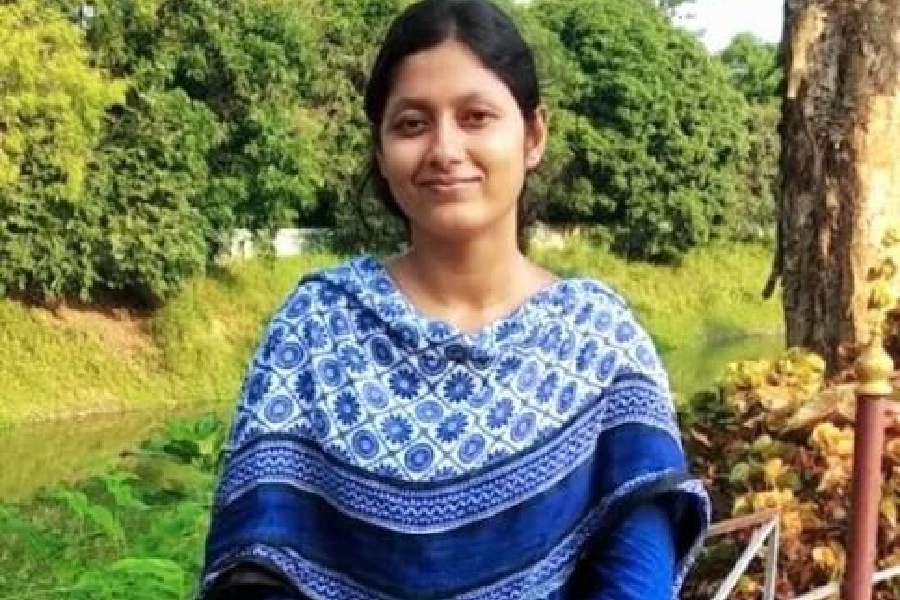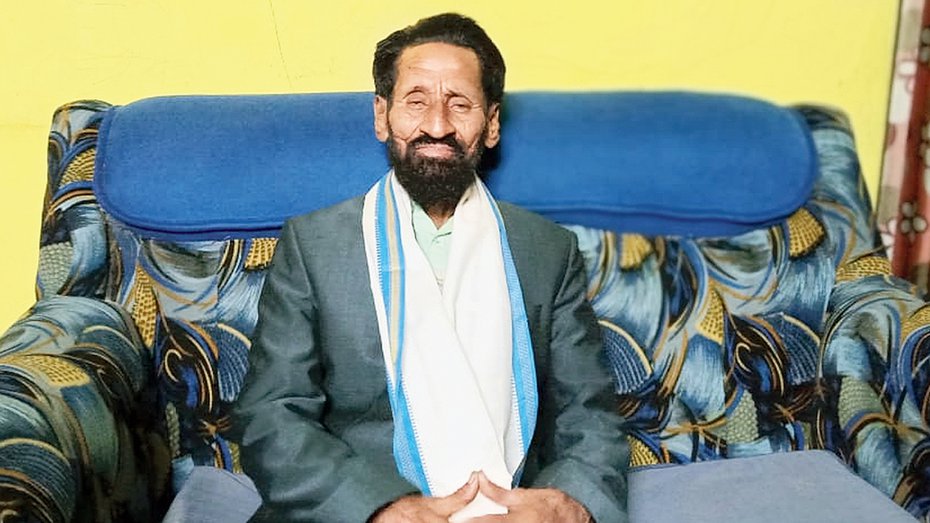Daulatabad (Murshidabad), WEST BENGAL:

Summary
Her next target, Sultana said, will be to clear the UPSC exams
Rukaiya Sultana, the daughter of a humble family from Murshidabad’s Daulatabad, has fulfilled her cherished childhood dream of becoming a public servant.
The 27-year-old woman qualified as a WBCS officer on Friday, securing 27th rank.
“I come from a poor family. My father works at a garment store and my mother is a para-teacher. Yet they have supported me throughout my academic journey. I can’t thank them enough,” Sultana told The Telegraph.
In her last attempt two years ago, Sultana could not clear the WBCS preliminary exams. However, she did not give up. She simply decided to work harder for the next time. That’s when her parents proved to be her biggest support, she added.
“I did not take admission to any coaching centre. My family couldn’t afford it. However, one of my cousins who had cracked the WBCS exams earlier is currently serving as a revenue officer. I would call her from time to time for help. She was my only guide,” Sultana said.
According to Sultana, she failed in her first attempt as she “did not prepare smartly enough”. However, this time she has secured the 27th rank and successfully completed all three steps — the preliminary, main and interview.
Her next target, Sultana said, will be to clear the UPSC exams. “I’m not stopping now,” she smiled.
It only shows how far she has come.
Sultana’s village Daulatabad, is a hamlet about 15 km away from the district headquarters in Behrampore. Since Class V, an independent-minded Sultana has been going to Kashiswari Girls’ High School in Behrampore all by herself. In both her Madhyamik and higher secondary tests, Sultana secured 85 per cent marks.
Later, she enrolled herself at the Krishnanath College in Behrampore for a BSc in chemistry and completed her post-graduate degree from Kalyani University in Nadia.
Throughout these years, Sultana never enrolled herself in any private tuition. “I knew I would not burden my parents. Their encouragement was enough,” she said.
Ruhul Hasan, Sultana’s father, earns around Rs 10,000 a month. Her mother Arjuma Khatun earns about Rs 12,000 to 13,000 every month. The cumulative amount could only provide for the family’s basic needs.
“We never had extras. We live in a two-room house and I had to arrange for the books I studied myself. I consider private tuition a luxury,” Sultana said.
Hasan could not praise his daughter enough.
“I could never admit my daughter to fancy institutions, nor am I educated enough to help her. She studied in a government school and whatever she has achieved is hers alone. I am very happy,” Hasan said.
source: http://www.telegraphindia.com / Telegraph Online – Edugraph / Home> Edugraph / by Alamgir Hossain / August 30th, 2023









